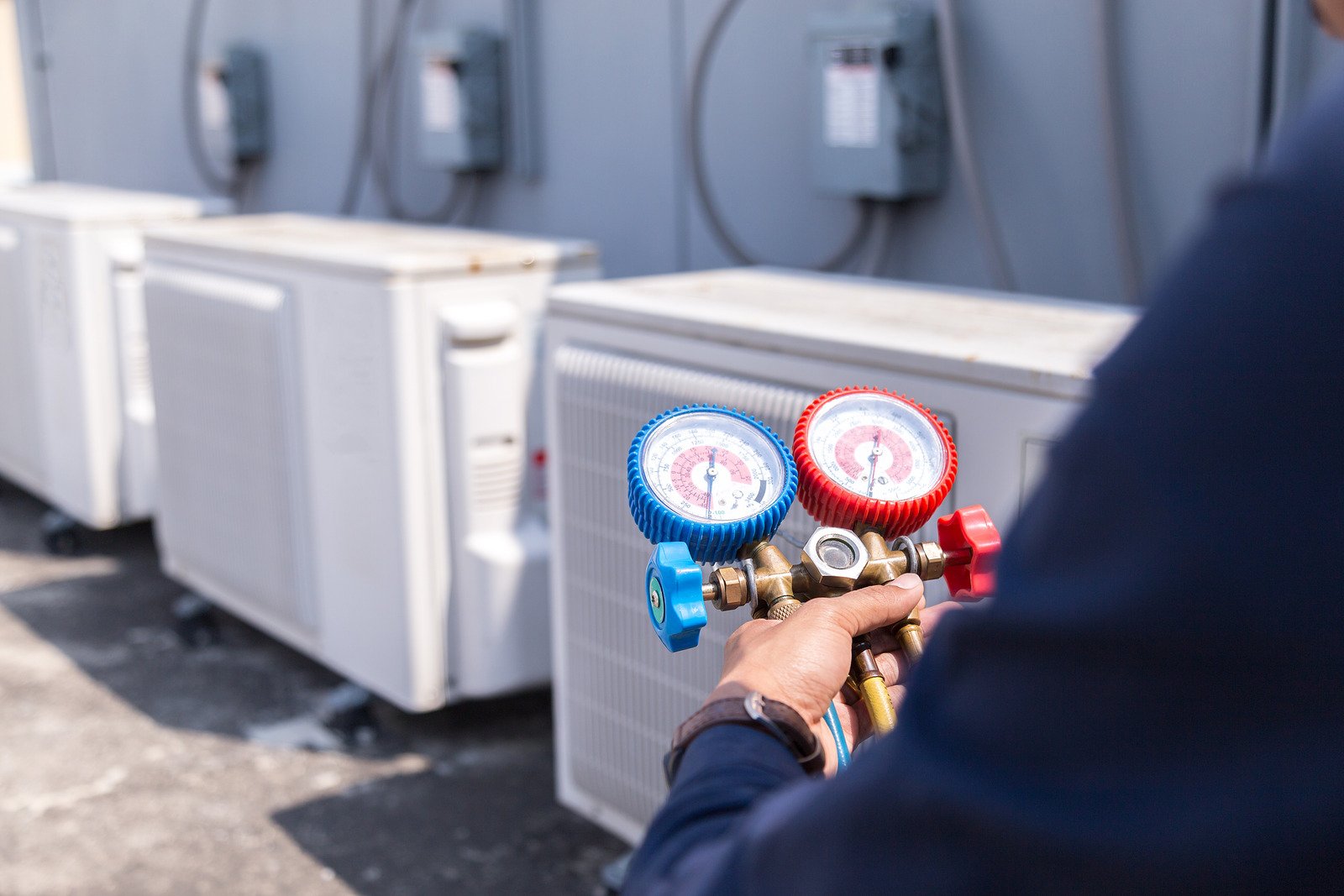Your air conditioner keeps your home comfortable, but over time it can develop problems. Recognizing the warning signs early can save you from bigger, more expensive repairs. Strange noises, uneven cooling, or a sudden jump in your energy bills are just a few red flags. Ignoring these issues can make things worse. Let’s look at the main signs that mean your AC needs professional attention right away.

Quick Summary
- Strange sounds like rattling, screeching, or buzzing often point to mechanical or electrical problems that need fixing.
- Uneven cooling or temperature swings usually mean malfunctioning parts or blocked airflow.
- Higher energy bills can be a sign your system is working too hard due to inefficiency or damage.
- Bad smells from vents or water leaks near the unit often signal mold, drainage problems, or refrigerant issues.
- Acting quickly on these signs helps prevent costly repairs and keeps your system running efficiently.
Unusual Noises Coming From the Unit
If your air conditioner makes unusual noises, don’t ignore them. They’re often the first clue something is wrong.
- A rattling sound could mean loose parts, like the fan motor, that need tightening or replacement.
- Screeching noises may signal compressor issues that need lubrication or repairs before they cause major damage.
- Hissing sounds could mean refrigerant leaks, which hurt efficiency and cooling power.
- A buzzing noise often points to electrical issues.
Addressing these problems early prevents bigger, more expensive breakdowns. Call a qualified technician to diagnose and fix the issue safely.
Inconsistent or Insufficient Cooling
If some rooms in your house feel warmer than others or your AC isn’t cooling like it used to, there’s likely a problem.
This can be caused by a malfunctioning thermostat, clogged ductwork, or low refrigerant levels. Not only does this hurt your comfort, but it can also make your AC work harder, leading to more wear and tear.
While regular maintenance helps prevent these problems, once you notice uneven cooling, it’s time to call in a professional. The sooner it’s fixed, the faster your comfort is restored.
Increased Energy Bills
A sudden rise in your energy bills could mean your air conditioner is no longer running efficiently.
Unusual Energy Consumption
When your AC is forced to work harder—because of clogged filters, leaks, or failing parts—it uses more energy. You might also see spikes in bills if your system is experiencing power fluctuations.
If your usage hasn’t changed but your bills have gone up, that’s a clear warning sign. Schedule an inspection to stop the problem before it gets worse and costs you more.
Inefficient Cooling Performance
If your AC can’t cool your home properly, it’s usually tied to airflow problems or refrigerant leaks.
Dirty filters, blocked ducts, or failing fans restrict airflow, while refrigerant leaks reduce cooling power. Both force your system to run longer and use more electricity. Fixing these issues quickly prevents higher bills and serious system damage.
Foul Odors Emitting From Vents
Bad smells coming from your vents are more than unpleasant—they often mean serious trouble.
- A musty odor usually points to mold growth caused by trapped moisture.
- A burning smell could mean electrical issues or overheating parts.
These problems can affect your air quality, health, and safety. Replacing filters and cleaning regularly helps, but if odors appear, call a professional immediately to find and fix the cause.
Water Leaks Around the Unit
If you see water pooling around your AC unit, don’t ignore it. Leaks can be caused by a clogged drain line, a cracked condensate pan, or even refrigerant issues.
Left untreated, water leaks can cause mold growth, water damage, or rust, all of which shorten your system’s life. If you notice water, shut off the unit and contact a technician before the damage spreads.
Short Cycling or Frequent On/Off Cycling
If your AC constantly turns on and off, it’s called short cycling. This is bad for both efficiency and the lifespan of your unit.
Causes of Short Cycling
- Dirty filters, blocked vents, or low refrigerant can cause overheating, forcing the system to shut down.
- Compressor problems may prevent the system from maintaining pressure or reading temperatures correctly.
- An oversized AC unit cools too quickly, leading to constant on-and-off cycles.
These issues can wear out your system quickly if not fixed.
Consequences of Frequent Cycling
Short cycling puts strain on your AC’s major parts, like the compressor and fans, leading to breakdowns and costly repairs. It also creates uneven temperatures and drives up your energy bills.
If ignored, short cycling can even cause total system failure. The sooner you address it, the better for both comfort and efficiency.
Thermostat Malfunctions
Sometimes the issue isn’t with the AC unit itself but with the thermostat.
Signs of thermostat problems include:
- Incorrect temperature readings (needs calibration).
- A blank, flickering, or unresponsive screen.
- The AC running nonstop or cycling too often.
- Settings that don’t match the actual temperature.
If your thermostat isn’t working properly, your AC can’t do its job. Get it checked out before it causes further strain on your system.
Frequently Asked Questions
How Often Should I Have My Air Conditioner Serviced?
You should schedule service once a year. Regular maintenance keeps your AC efficient, prevents breakdowns, and extends its lifespan.
Can I Continue Using My AC if It Shows Warning Signs?
No—you shouldn’t. Running your AC with warning signs can cause bigger problems, higher repair bills, and even total system failure.
What Are Common Causes of Air Conditioner Breakdowns?
Common causes include thermostat issues, refrigerant leaks, clogged filters, and short cycling. Fixing these quickly prevents worse damage.
How Do I Choose a Reliable HVAC Repair Technician?
Look for licensed and certified technicians with solid experience. Read reviews and ask for recommendations to find a trustworthy pro.
What Maintenance Can I Perform to Prevent Repairs?
Replace or clean filters regularly and make sure your thermostat is calibrated. These simple steps reduce strain and keep your system running longer.
Conclusion
If you notice any of these warning signs—odd noises, uneven cooling, rising bills, bad smells, water leaks, short cycling, or thermostat problems—don’t wait. Call a professional right away.
Fixing issues early prevents costly repairs, keeps your AC efficient, and ensures your home stays cool and comfortable. Stay proactive, and your air conditioner will serve you well for years to come.

